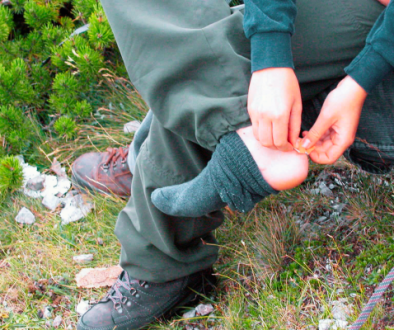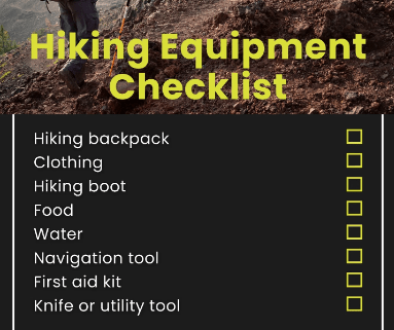The Great Outdoors – Mental Health Benefits of Hiking 2025
Experiencing anxiety and panic attacks for the first time can be deeply unsettling and frightening. Many people encounter these feelings at some point in their lives, and they often trigger a search for solutions and coping mechanisms. For me, this journey led to a profound and life changing discovery.
The Beginning of My Mindfulness Journey
When I faced my first anxiety attack, I got into a rabbit hole of personal development. One piece of advice that stood out was taking a walk to help ease the symptoms of anxiety and even prevent panic attacks themselves. Intrigued by the simplicity of this suggestion, I decided to give it a try.
Discovering nature’s healing touch
At first, my walks were more about distraction than being present. I would plug in my headphones and listen to music or podcasts, using them as a barrier between myself and the world. However, I soon realised that while these walks were helpful, they weren’t providing the full benefit I was seeking.
One day, I decided to leave my headphones at home and immerse myself fully in the experience. This small change marked the beginning of a significant transformation.
The Power of Presence
Walking without distractions forced me to be present in the moment. I began to notice the rustling of leaves, the chirping of birds, and the wind hitting my skin. I found that I was more aware of my surroundings than ever before. This newfound presence didn’t just enhance my sensory experiences, it also had a profound impact on my mental state.
Focusing on the here and now shifted my attention away from the anxious thoughts that were swirling in my mind. As a result, I started to feel a sense of calm and clarity that had been elusive for so long. My walks transformed from mere physical exercise into a form of a moving meditation, significantly boosting my mindfulness practice.
Confidence and connection
Another unexpected benefit of these nature walks was the boost in my confidence. As I walked with my head up, taking in the beauty around me, I felt a growing sense of self-assurance. This newfound confidence wasn’t just limited to my walks; it began to show in other areas of my life as well.
Additionally, I found joy in simple interactions with others. Saying a friendly hello to fellow hikers and passersby became a gratifying experience. These small connections, brief as they were, reminded me of the goodness in people and added a layer of positivity to my walks.
The Benefits of Nature Walks
Engaging in regular nature walks offers numerous benefits for mental and physical well-being:
Reduction of anxiety and stress: Immersing oneself in nature has been shown to lower cortisol levels and reduce overall stress. The rhythmic motion of walking combined with the tranquil environment helps calm the mind.
Improved mood: Exposure to natural light and fresh air boosts the production of serotonin, the “feel-good” hormone. This can lead to improved mood and a greater sense of happiness.
Enhanced mindfulness: Walking in nature encourages mindfulness, helping individuals stay present and focused on the moment rather than ruminating on past events or future worries.
Physical health benefits: Regular walking improves cardiovascular health, strengthens muscles, and boosts overall physical fitness.
Increased confidence: Engaging with the environment and others during walks can enhance self-confidence and foster a sense of community and connection.
Conclusion
My journey from experiencing anxiety and panic attacks to finding comfort in nature walks has been transformative. The simple act of walking, especially in natural surroundings, has provided me with a powerful tool to manage my anxiety and improve my overall wellbeing. By being present and embracing the beauty around me, I have discovered a newfound sense of peace, confidence, and connection. If you’re struggling with anxiety, I highly recommend stepping outside and taking a walk in nature, you might just find it to be as life-changing as I did.
Incorporating mindfulness into these walks can further amplify the benefits, helping you stay grounded and focused on the present moment. So, lace up your shoes, head outside, and let nature work its magic on your mind and body.
Mental Health Benefits of Hiking: Frequently Asked Questions
Q: How does hiking help reduce stress and anxiety? Regular hiking has been shown to lower cortisol levels (the body’s primary stress hormone) and increase the production of endorphins, our natural “feel-good” chemicals. The combination of physical exercise, exposure to nature, and removal from daily stressors creates a powerful anxiety-reducing effect. Research indicates that even a 90-minute walk in nature can significantly decrease negative thought patterns and activity in brain regions associated with depression.
Q: Can hiking improve my sleep quality? Hiking combines two key elements that promote better sleep: physical activity and natural light exposure. The moderate-to-vigorous exercise you get while hiking helps regulate your circadian rhythm, while exposure to natural daylight helps maintain healthy sleep-wake cycles. Additionally, the mental calming effects of being in nature can reduce bedtime anxiety and racing thoughts that often interfere with sleep.
Q: What makes hiking different from other forms of exercise when it comes to mental health? Unlike gym workouts or urban running, hiking offers a unique combination of physical activity and nature immersion, often called “green exercise.” The varied terrain requires mindful attention to your surroundings, creating a natural form of moving meditation. The changing scenery, natural sounds, and fresh air engage all your senses, helping to break the cycle of repetitive thoughts and promoting mindfulness in a way that indoor exercise cannot match.
Q: How long or frequently should I hike to experience mental health benefits? Studies suggest that even short hikes of 20-30 minutes can provide immediate mood-boosting effects. However, for lasting mental health benefits, aim for at least 2-3 hiking sessions per week, with each session lasting 1-2 hours. The key is consistency rather than duration – regular shorter hikes are more beneficial than occasional long treks. Starting with manageable trails and gradually increasing difficulty and duration helps build a sustainable hiking habit.
Q: Can hiking help with social connection and loneliness? Hiking can be an excellent social activity that combats loneliness while providing mental health benefits. Group hikes offer opportunities for meaningful connection in a low-pressure environment, where conversations flow naturally during the shared experience. Many communities have hiking groups or clubs that welcome beginners, making it easier to meet like-minded people. Even solo hiking can provide a sense of connection – to nature, oneself, and the broader outdoor community you encounter on trails.




